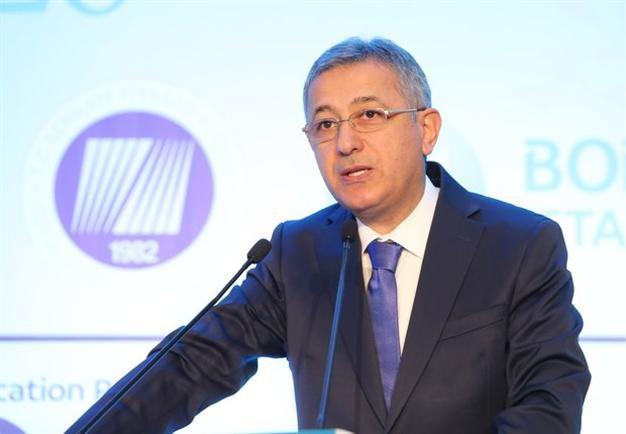Turkey to boost use of Islamic finance
ISTANBUL - Anadolu Agency

AA photo
The Turkish government is seeking to increase the use of Islamic finance for state agencies, state-owned companies and the private sector, a senior treasury official has said.
“The lack of long-term financing is choking developing countries,” said Hakan Tokaş, the director-general for Foreign Economic Relations at the Undersecretariat of the Turkish Treasury, speaking at a G-20 meeting on Islamic finance in Istanbul on Nov. 18.
“The government will continue to issue sukuk both in Turkish Lira and in foreign denominations. Turkish lira issuance will be aimed at the domestic market, while foreign-currency denominated sukuk will be issued on the international market,” Tokaş said.
Sukuk is an Islamic finance instrument that resembles a bond, but is based on asset growth rather than interest payments - forbidden under Muslim religious law.
“With this policy, which few governments currently undertake, Turkey hopes to set a benchmark for the acceptance of sukuk, and to broaden the investor base for the instrument,” Tokaş added.
“With Turkey, a regular borrower in sukuk, the instrument will gain access to new markets.”
Islamic finance to become ‘major source of long-term investments’
For Vahdettin Ertaş, chairman of the Capital Markets Board of Turkey (SPK), the country offers important opportunities for investment, particularly in the current challenging global climate.
“Islamic finance will become a major source for long-term investments,” Ertaş said, adding, “Because Islamic instruments are asset-based, and not debt-based, they manage risk well.”
Asset-based instruments are based on earnings from productive activity, as well as sharing risk and profit among investors.
“Islamic finance will play a vital role in Turkish infrastructure development,” Ertaş said. “The risk-sharing component is key. This will enable investors to control the complex challenges of large infrastructure projects more efficiently.”
Tokaş added Turkey now offers several financial structures for Islamic finance that are exempt from corporate tax. There are also no important restrictions on foreign participation, he added.
Zamir Iqbal, the head of the World Bank Global Islamic Finance Development Center, noted the Turkish presidency of the G-20 has helped to bring Islamic-finance development to the fore.
“The Turkish G-20 presidency has promoted a road map for development finance that has included Islamic finance,” Iqbal said.
“This has helped countries to take steps to improve the enabling environment for Islamic finance - regulatory, legal and fiscal - which need to be addressed if Islamic finance is to grow,” Iqbal said.
